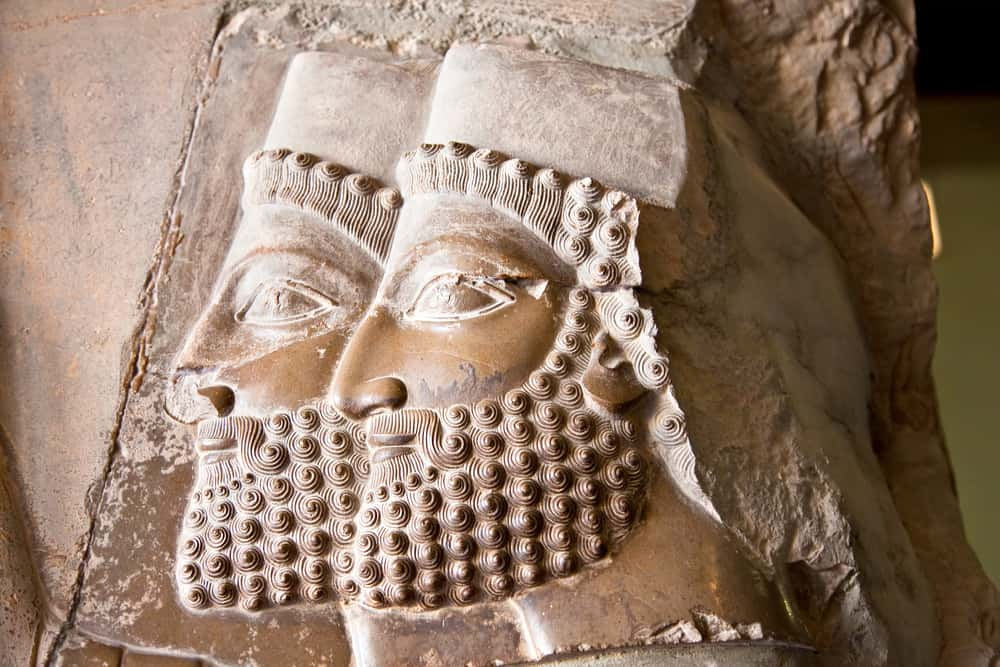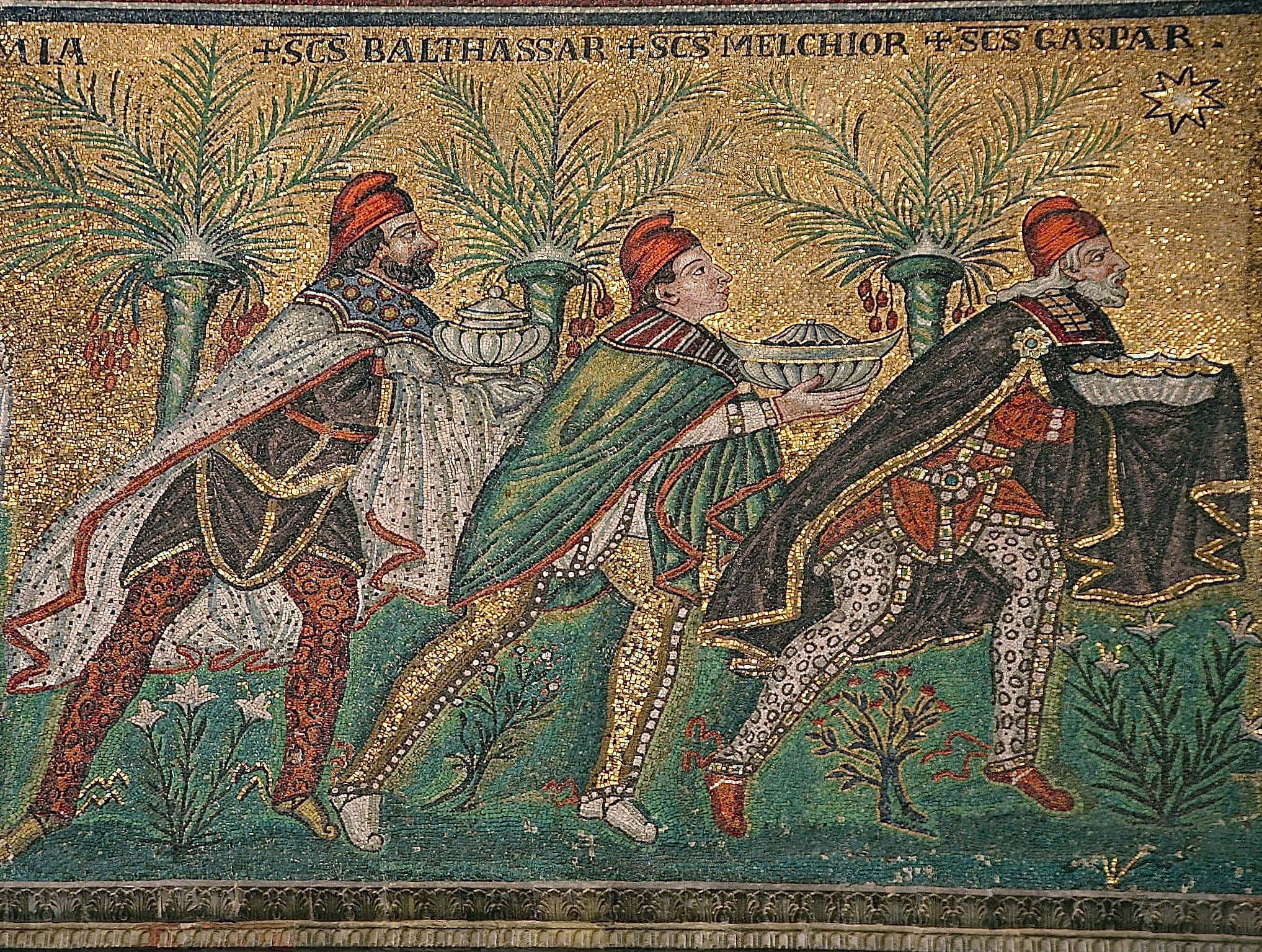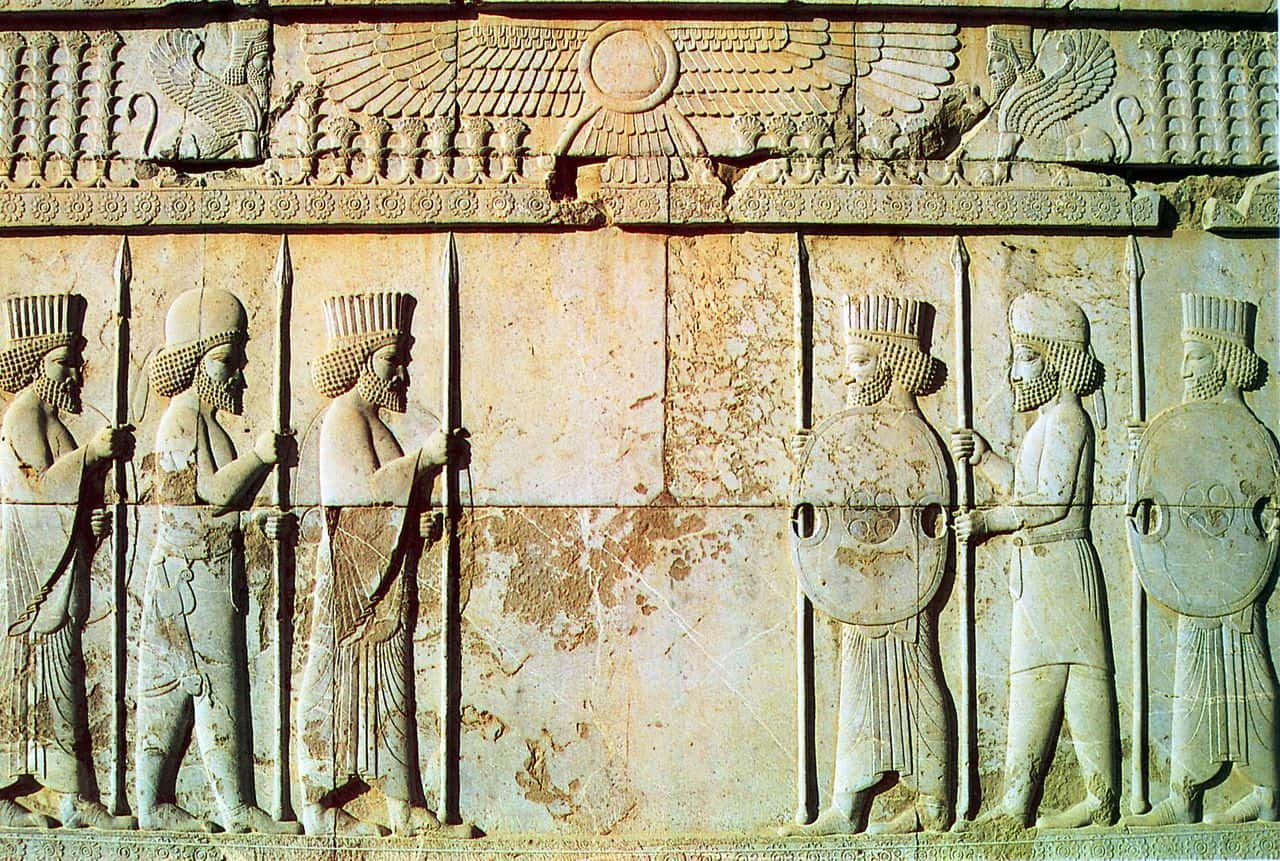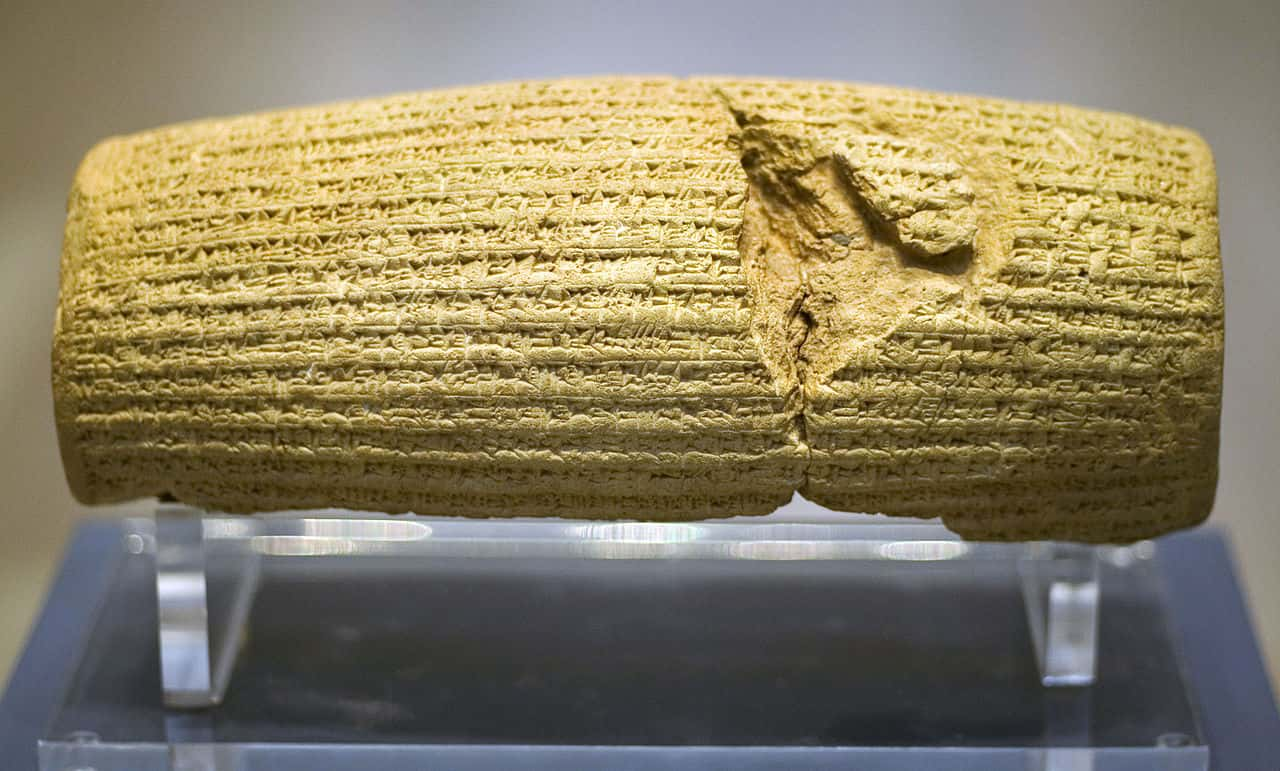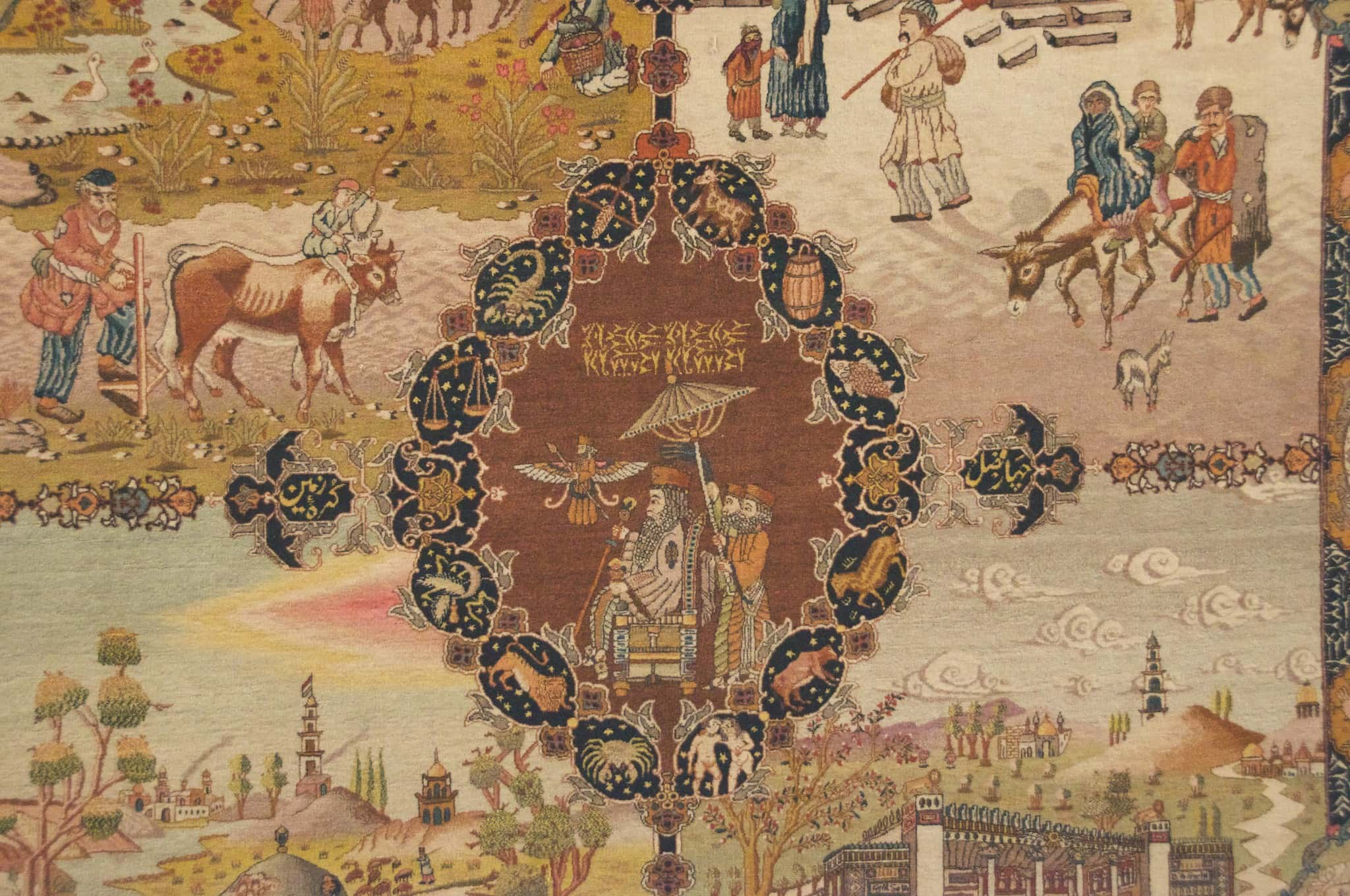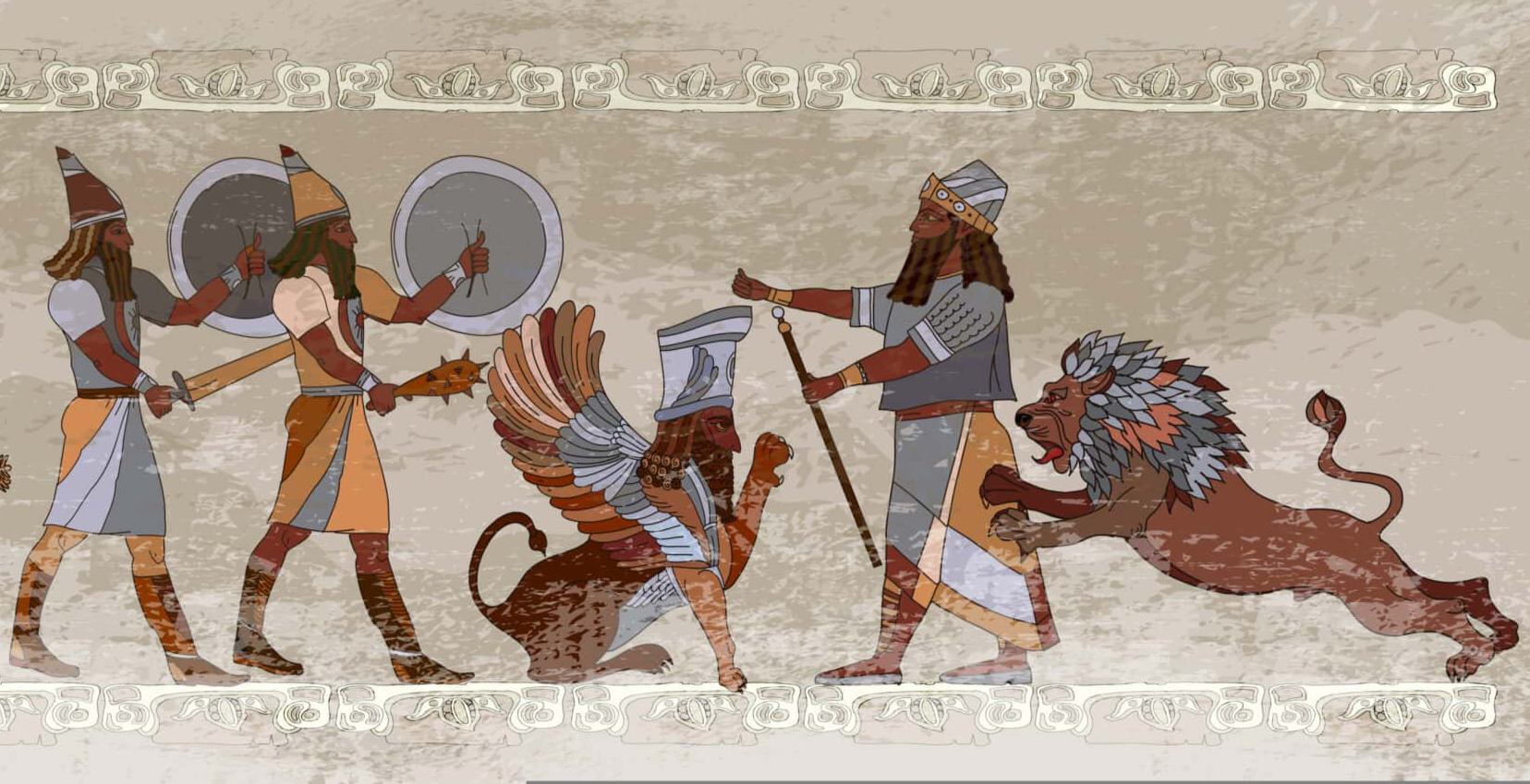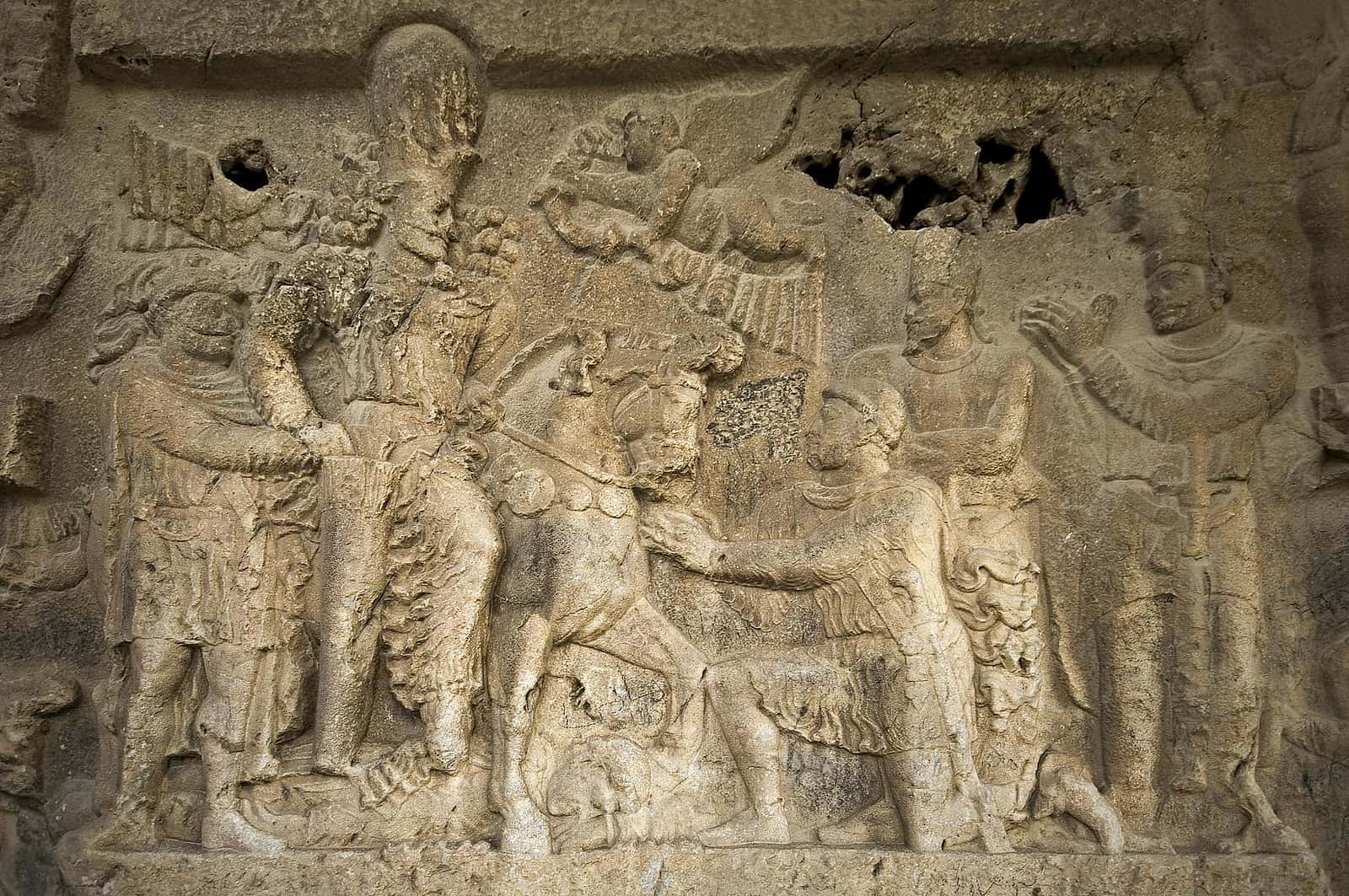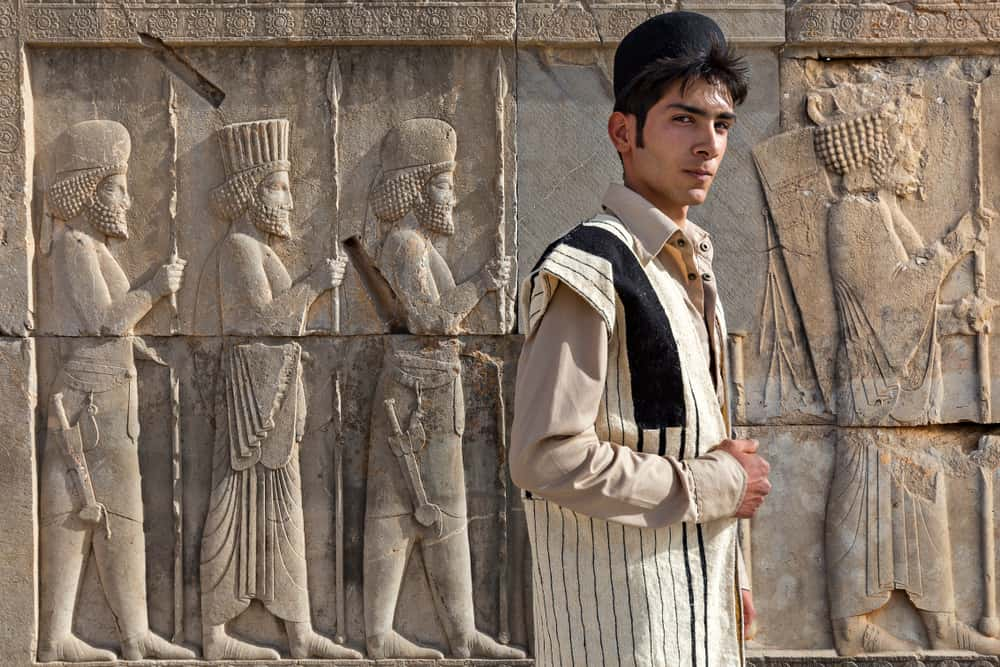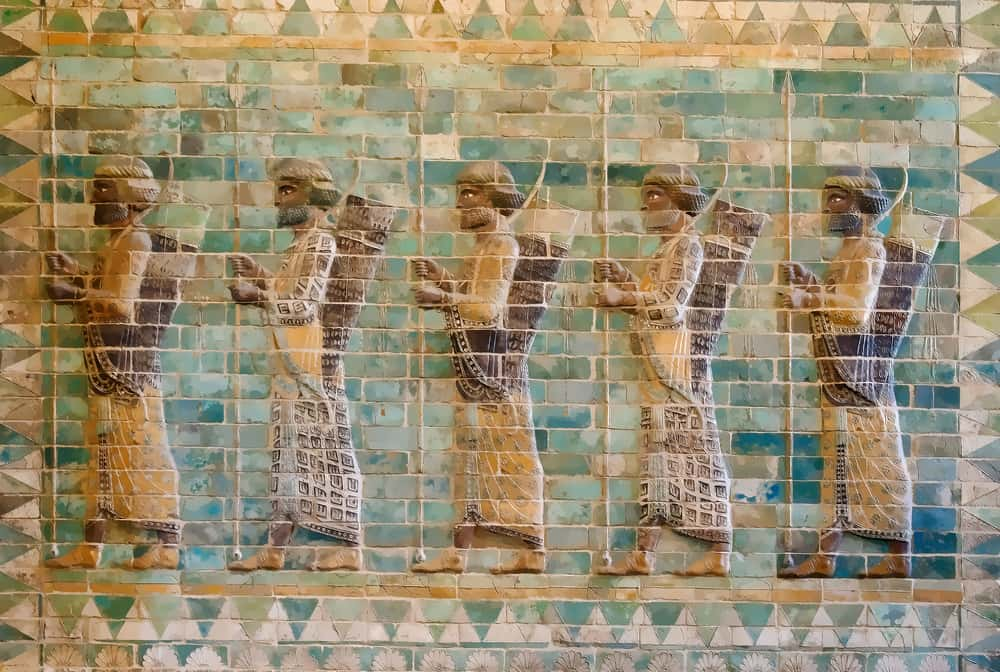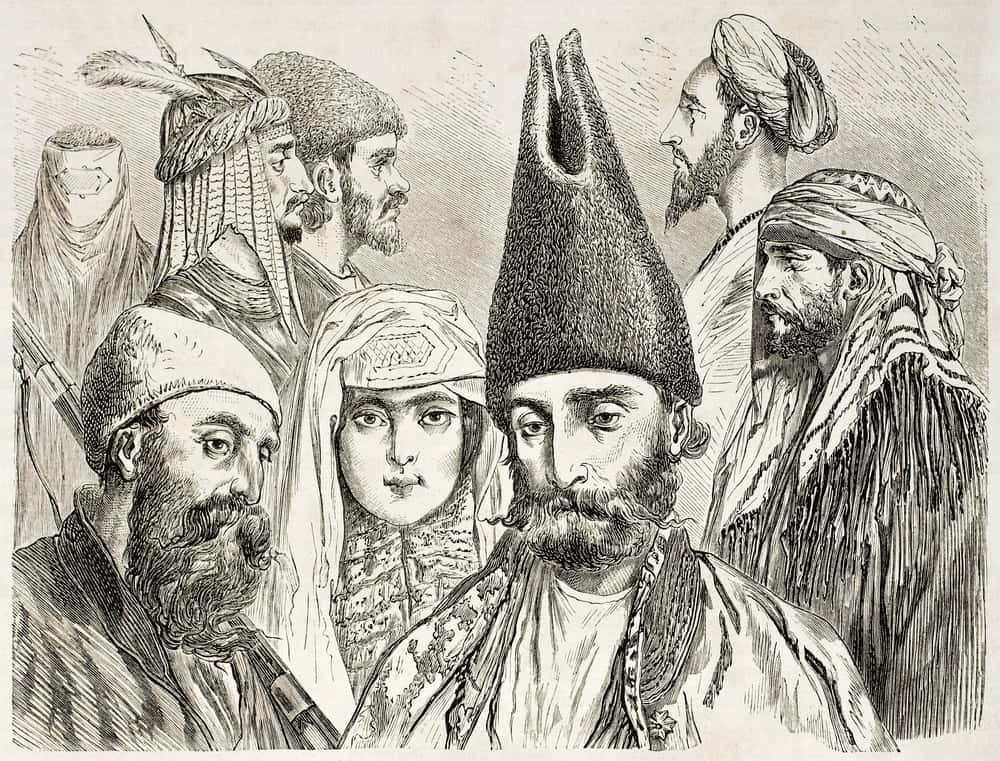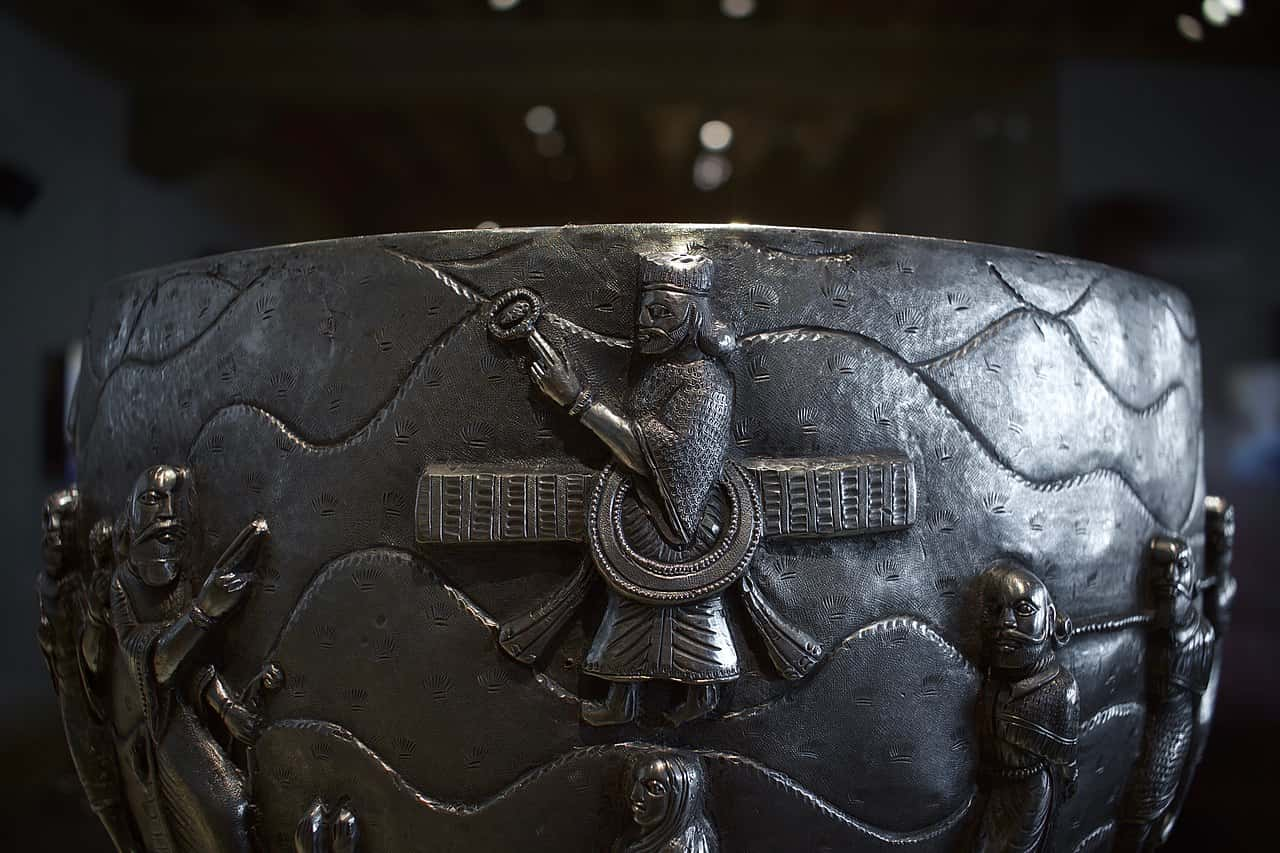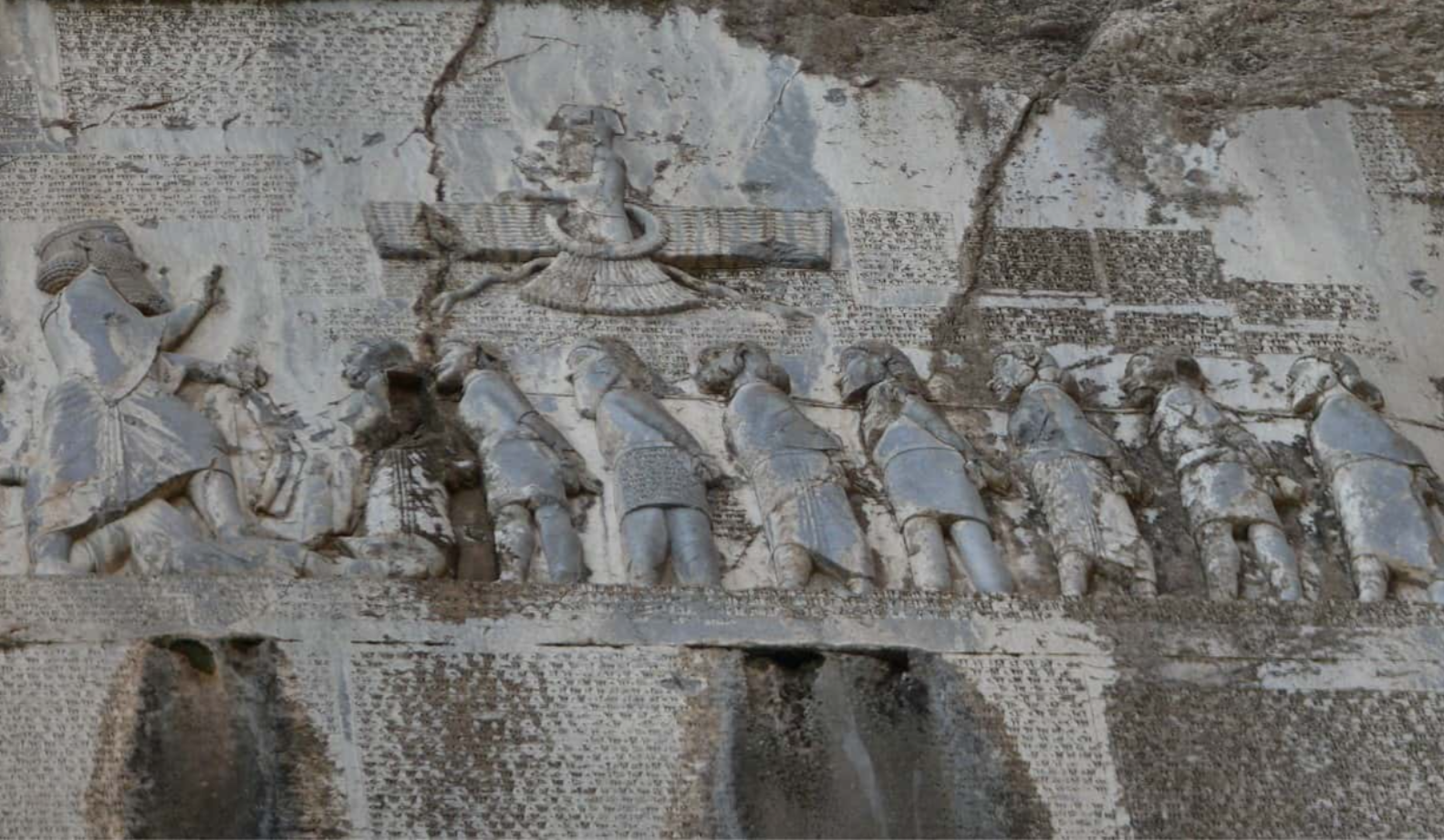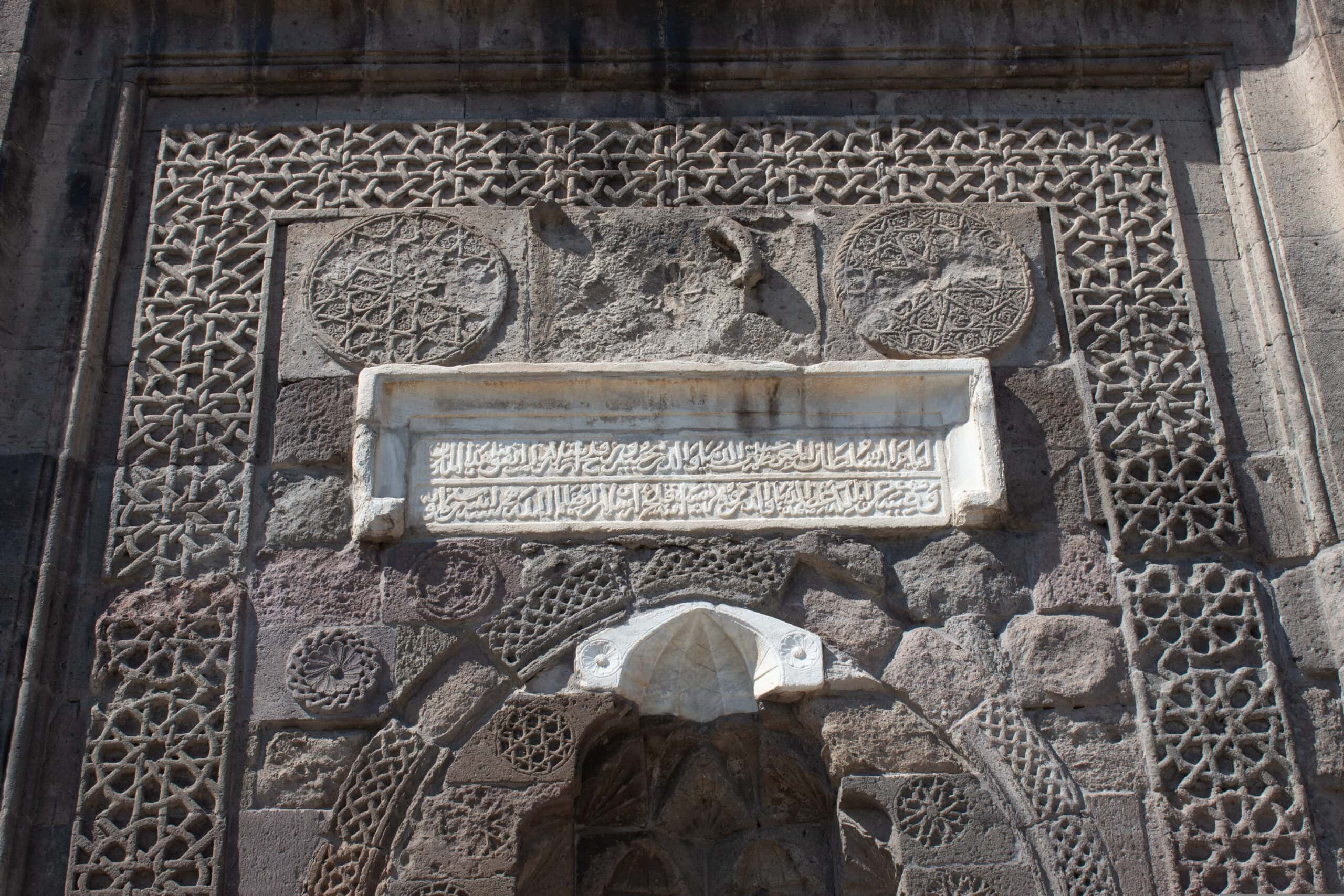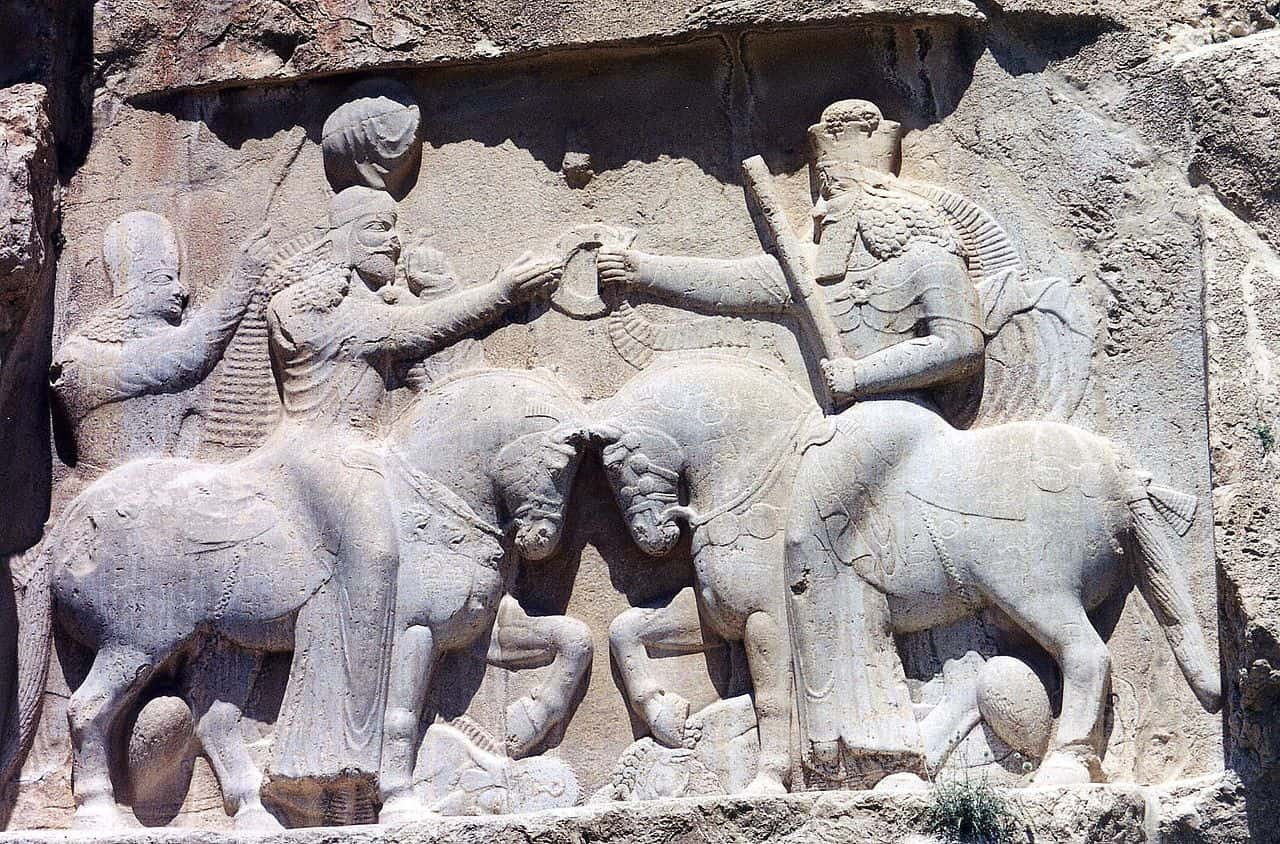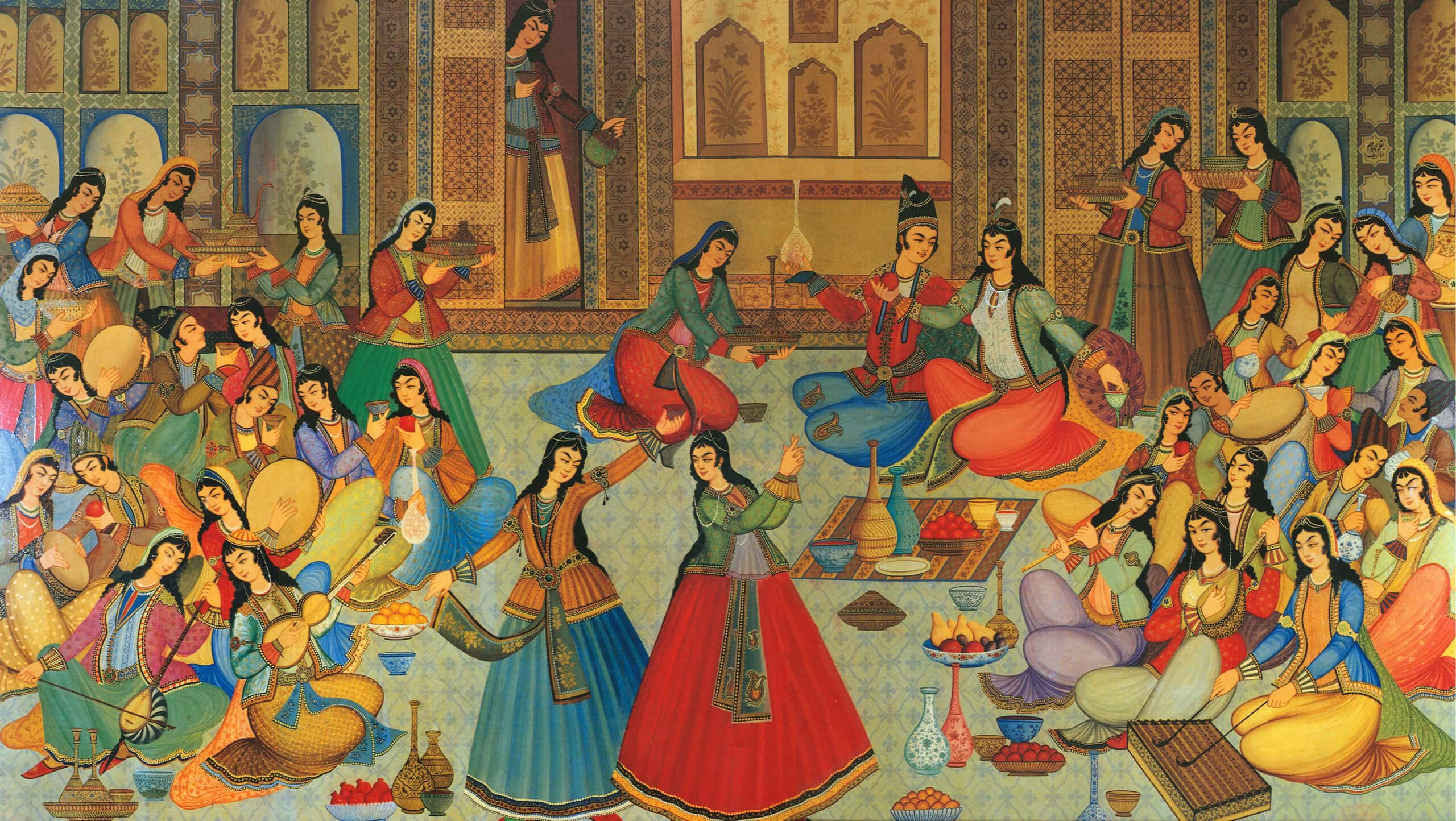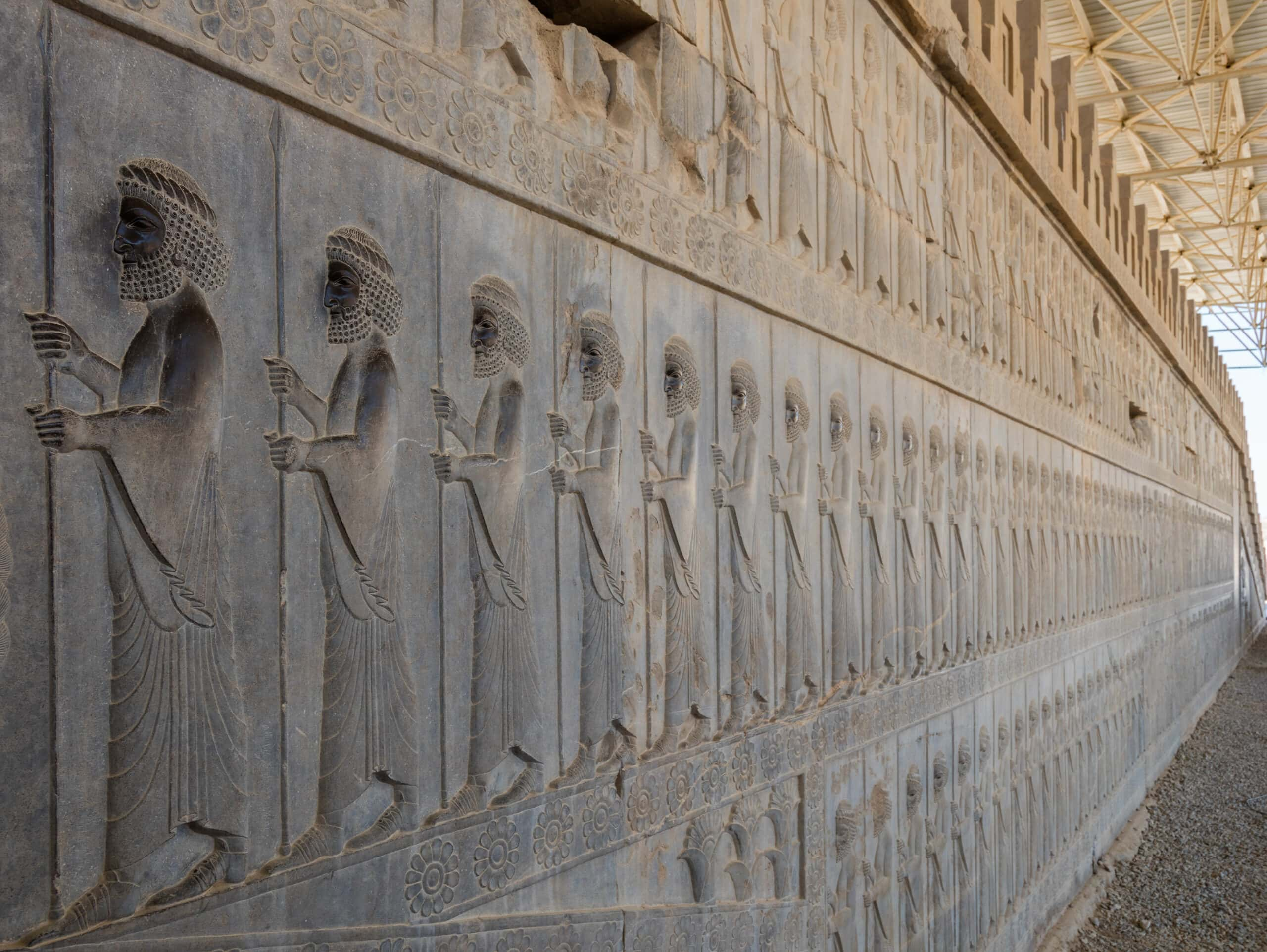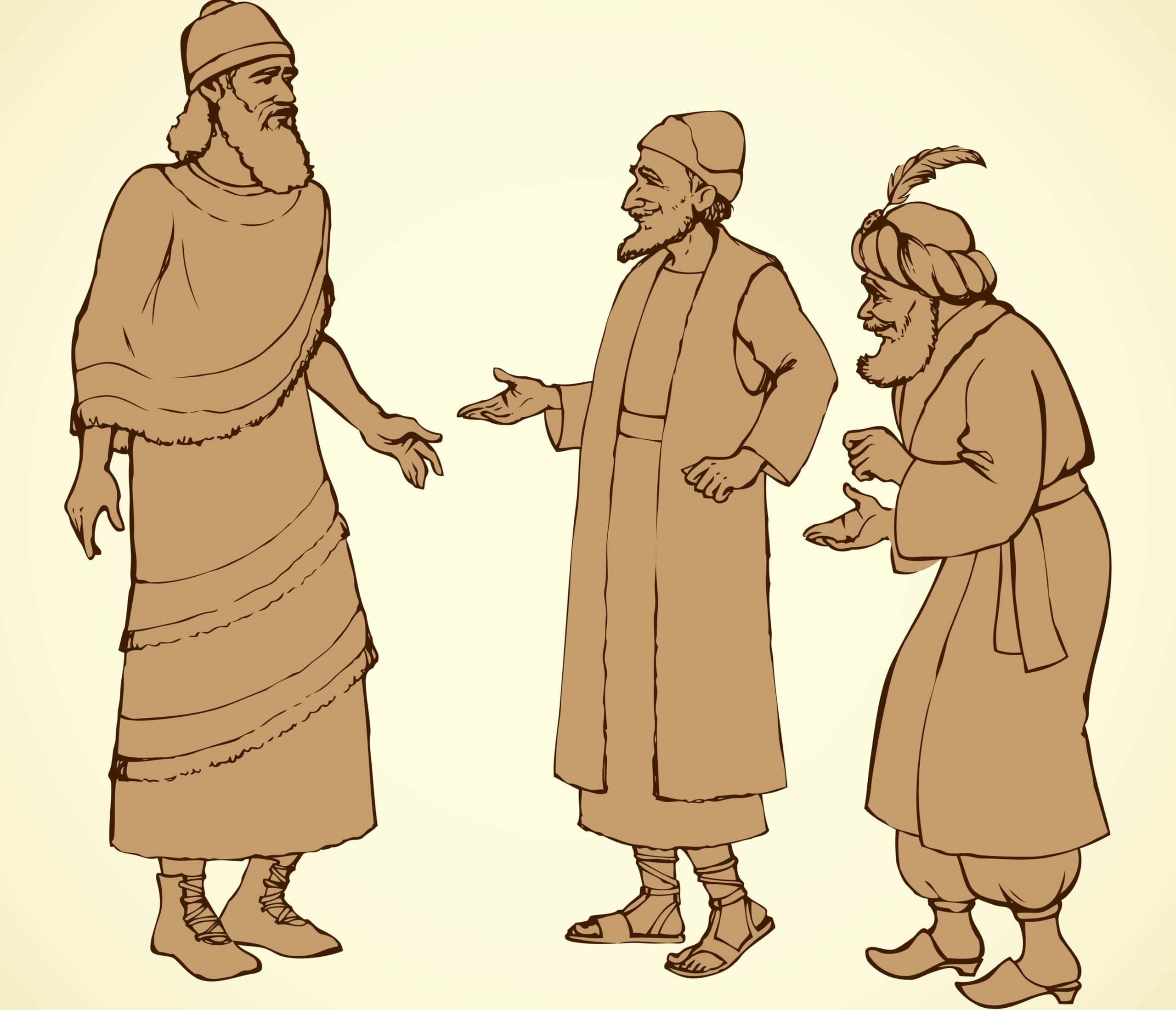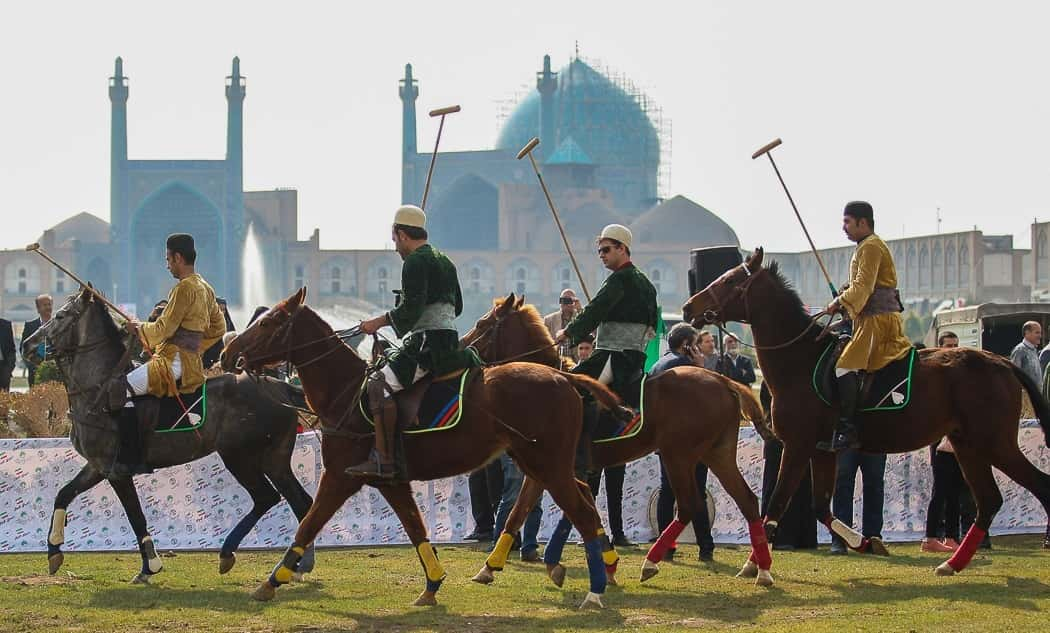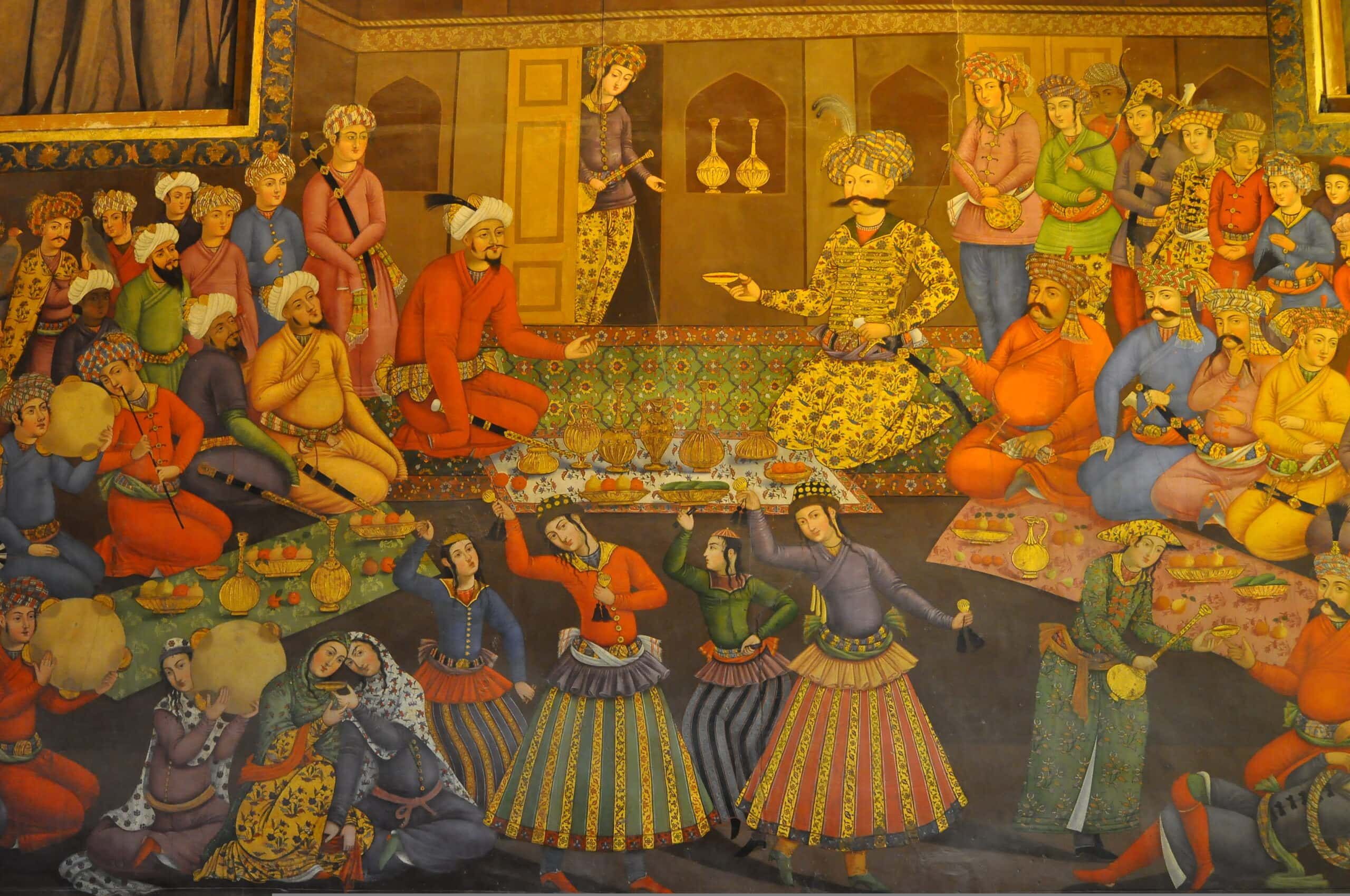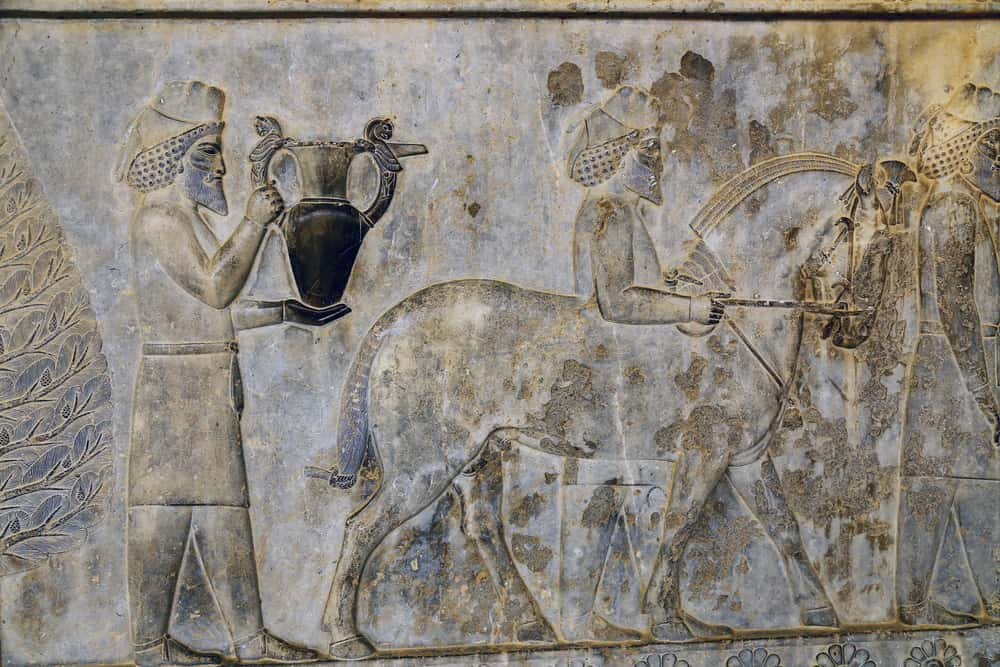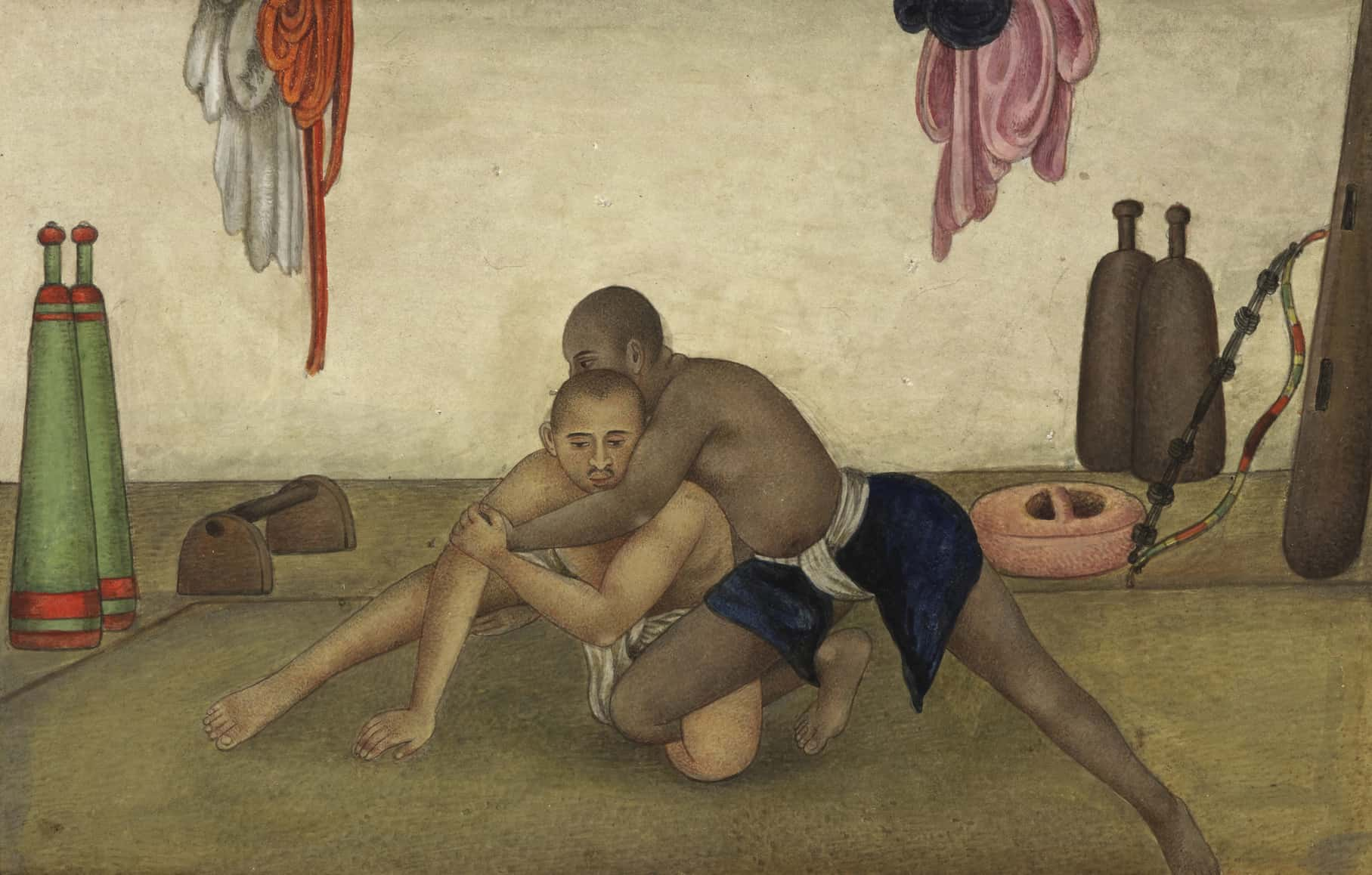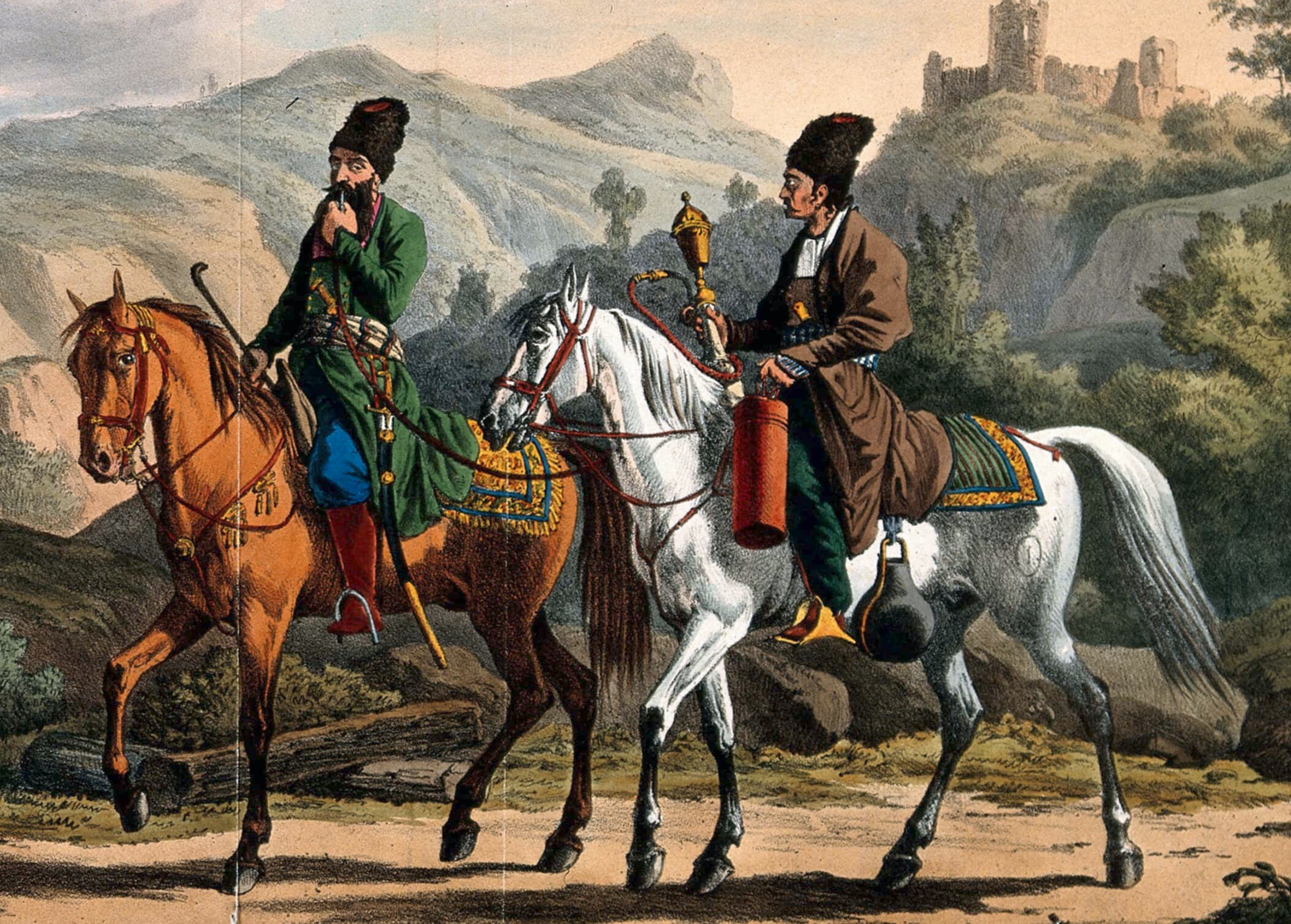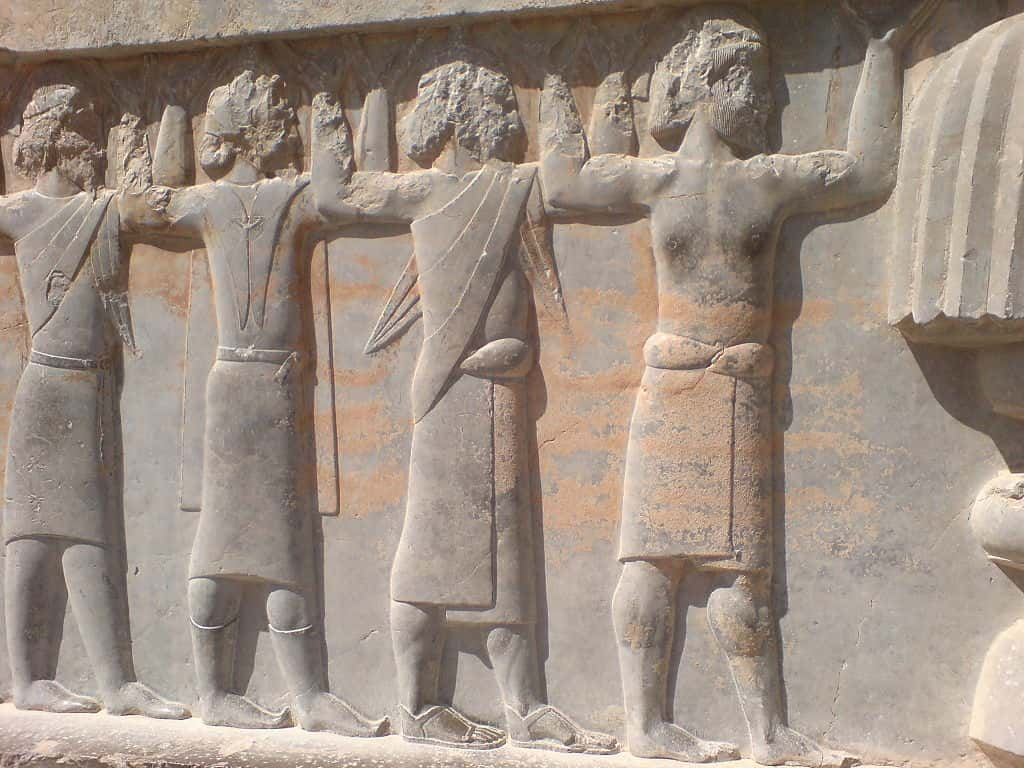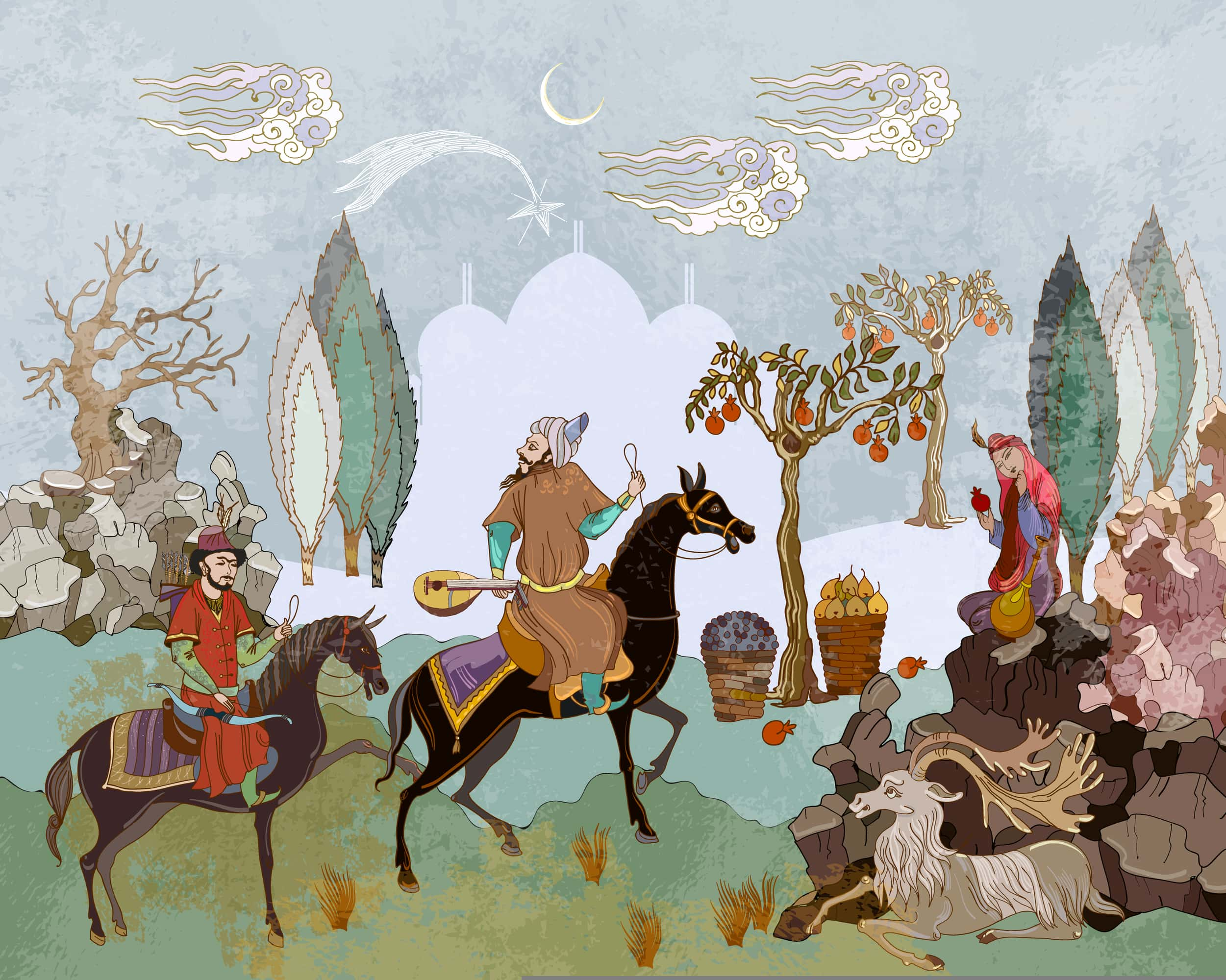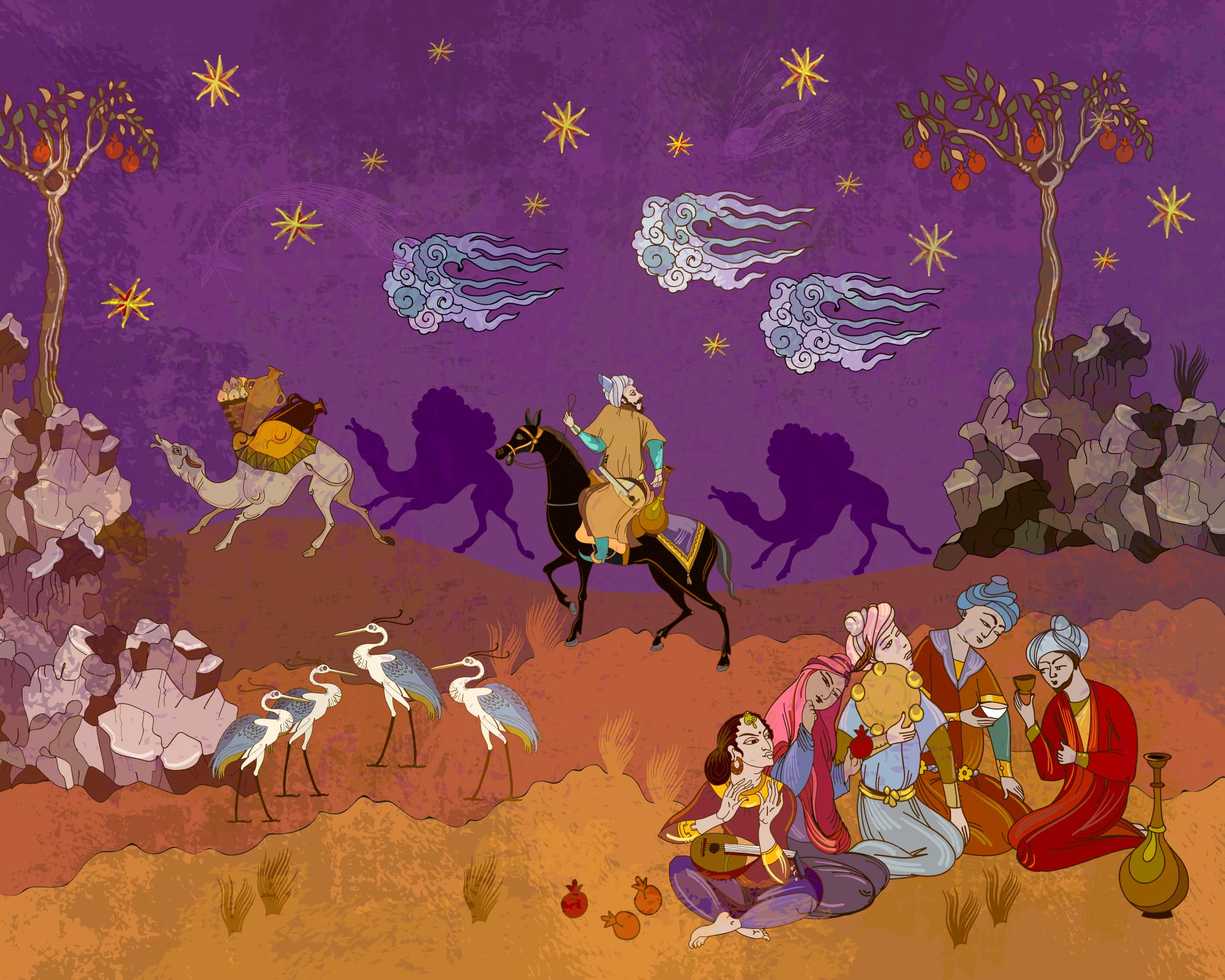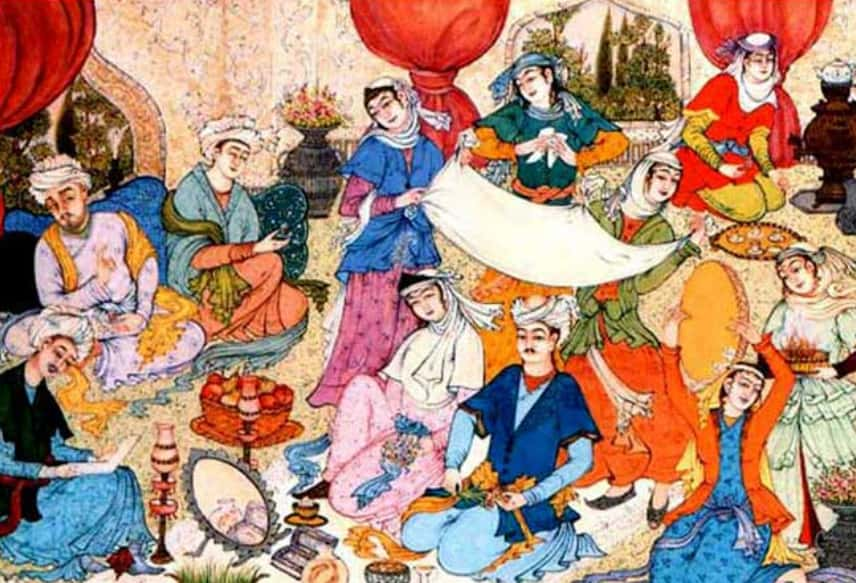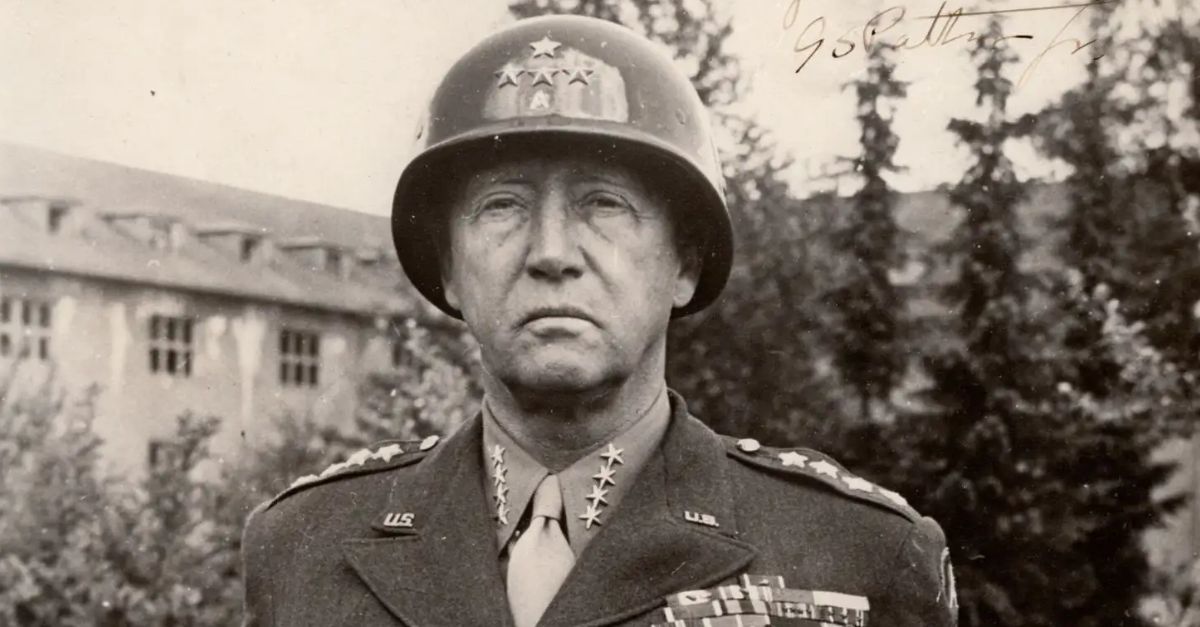Considering it was once the biggest empire in the world, we know surprisingly little about ancient Persia. The picture our sources paint is a bizarre combination of enlightened, tolerant imperial policies and brutal, Game of Thrones-style brutality. In a society where you could practice whatever religion you wanted but you might get skinned alive for accepting bribes, life in ancient Persia was rarely dull. Here are 42 astounding facts about life in ancient Persia.
42. Crack Open a Cold One
The Persians had a way to keep their food refrigerated during the hot summers. They would build big underground chambers, called yakhchals, insulated with heat-resistant mud bricks, and cooled with ice and wind.
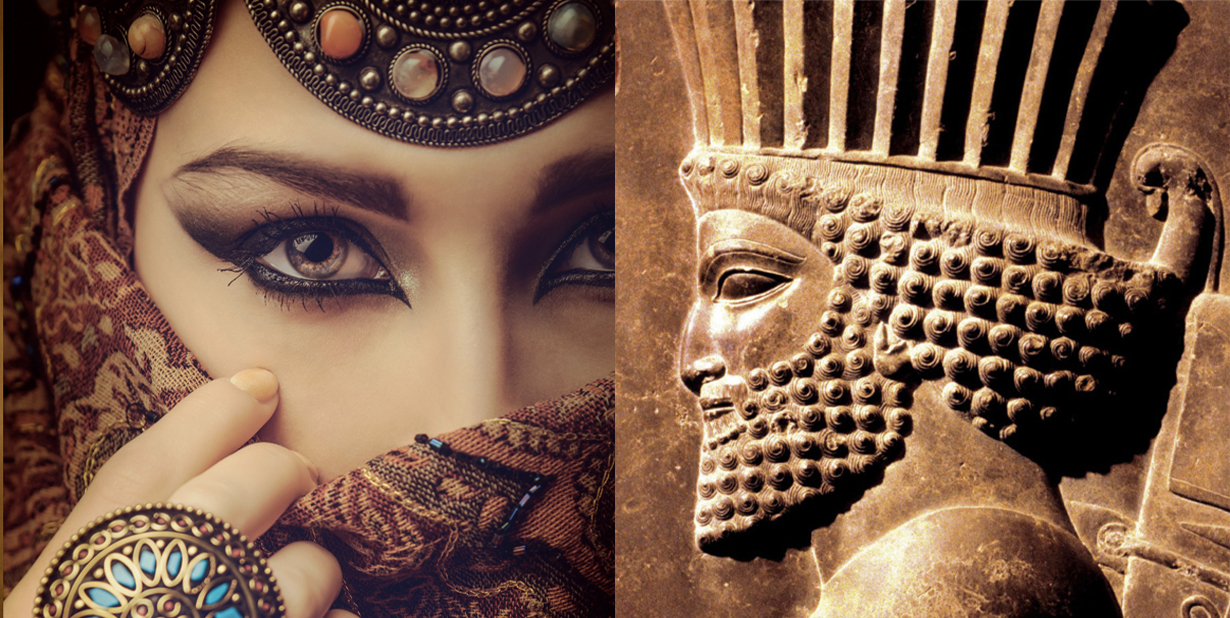
41. Lesson Learned
One Persian judge suffered a gruesome fate when he was caught accepting a gift. The judge was ended and then skinned, and his skin was used to upholster a new judge’s chair. The worst part? The judge’s own son replaced him and had to sit on a chair of his father’s skin.
40. Not So Festive
The Ancient Persians held a grim annual holiday, called the “Slaughter of the Magi.” The Magi were a class of Zoroastrian priests, and when the people realized that one of them had wrongfully taken the Persian throne, they ended him and all the other Magi they could find. On that day every year, they commemorated the bloodshed by murdering all the Magi they found outside.
39. Not Much to Work With
Besides the evidence of archaeology and occasional fragments of inscriptions, the Ancient Persians left us with very little information about their lives. We rely almost entirely on the accounts of their enemies—particularly the Greeks—to reconstruct their history and lifestyle.
38. Entourage
Persian kings could lead awfully extravagant lives, and the court was a major employer for all sorts of workers. When King Darius III marched off to fight Alexander the Great, he brought 300 cooks, 300 musicians, and 70 booze -filterers, among others. Oh, yeah!
 Alexander (2004), Warner Bros.
Alexander (2004), Warner Bros.
37. The Cyrus Cylinder
The earliest known human rights charter was made in Persia, in 539 BC, on the orders of King Cyrus the Great. Inscribed on a clay cylinder, the charter guaranteed tolerance for all the races, languages, and religions in the Empire.
36. Setting Things Right
King Cyrus didn’t just preach religious tolerance, he practiced it. When Persia conquered Babylon in 539 BC, Cyrus freed the Jewish population that had been exiled from Judah for decades. They returned to Judah and constructed the second temple in Jerusalem while under Persian rule.
35. Embracing Diversity
Persian subjects in the 5th century BC were incredibly diverse. The empire stretched from just north of Greece in the west, all the way to Pakistan in the east, and encompassed Egypt, Mesopotamia, Arabia, and far more.
34. Raising the Perished
The Persians were among the earliest civilizations to practice necromancy—it was their most common form of divination. Pexels
Pexels
33. Know Your Place
Ancient Persian society followed a feudal system based on strict hierarchies. The three classes were nobles, bondsmen, and slaves—though technically, everyone was a bondsman of the king. The classes were distinguished by the colors they wore.
32. Bow Before Me
The Ancient Persians displayed social status through proskynesis: the practice of bowing down before someone who was their superior. Alexander the Great caused outrage when he tried to make the Greeks practice proskynesis after conquering Persia.
31. Stay in School
Elite Persian boys followed a strict upbringing designed to mold them into army leaders. A boy was taken from his father and brought up by his mother and other female relatives until age five. After that, he went to court to begin his army upbringing, including how to “ride horses, use the bow, and speak the truth.”
30. Matching Outfits
There were over 100,000 army people in the king’s national army, and they were the first army to adopt a standard uniform. No camo in this army, though—they preferred bright colors.
29. A Human Tank
Anyone skilled enough to make it into the Immortals—an elite corps of the army’s 10,000 best fighters—was equipped to be a one-man ending machine. At a minimum, the Immortals carried a sword, a spear, a bow, a quiver of arrows, and a shield, and they wore gleaming plate armor.
28. Women’s Work
Women seem to have led active public lives in Ancient Persia, and documents show they worked as laborers alongside men, and even led crews of workers.
27. Link to the Past
The Persian Empire adopted Zoroastrianism as their state religion in the 6th century BC. One of the oldest religions in the world, Zoroastrianism is still practiced today.
26. Semi-Slave 4 U
Unlike other civilizations of the time, the Ancient Persians didn’t rely to a great extent on slavery. They kept prisoners of battle in a state of “semi-slavery,” but there is no sign of the large-scale use of slave labor. The word they used for slaves was the same as that for dependents.
25. Fight Like a Girl
One of King Xerxes’ most trusted advisors and best fighters was a woman. Queen Artemisia of Halicarnassus, a Greek state under Persian rule, commanded her own ship at the Battle of Salamis and prompted Xerxes to say, “My men have become women, and my women, men.”
 300: Rise of an Empire (2014), Warner Bros.
300: Rise of an Empire (2014), Warner Bros.
24. General Hospital
Ancient Persia had the first teaching hospital, and they are credited with inventing the hospital system as we know it.
23. Neither Snow nor Rain nor Gloom of Night
The Persians’ postal service stretched about 1,700 miles, a distance their couriers could travel in just seven days. The Greek historian Herodotus wrote, “There is nothing in the world that travels faster than these Persian couriers.”
22. Don’t Talk with Your Mouth Full
The Ancient Persians were known for their extravagant, multi-day feasts, especially in celebration of birthdays. It wasn’t always a party atmosphere, though: no talking was allowed while dining.
21. Job Description
Persian kings kept many eunuchs in their court. While eunuchs could be useful administrators and sometimes rose to positions of considerable power, that wasn’t their only job. When King Darius III marched off to fight Alexander the Great, he brought hundreds of eunuchs and concubines to keep him company.
20. Ancient Poaching
The Ancient Persians believed that rhino horn could detect poison.
19. True or False
Telling a lie was one of the most disgraceful things you could do as an Ancient Persian. The Greek historian Herodotus tells us they thought the only thing worse than lying was owing a debt, because “the debtor is obliged to tell lies.”
18. Fun and Games
Persian elites could amuse themselves by playing an early version of polo—this wasn’t just fun, it was a great way to train cavalry.
17. Tipsy Thoughts
When Ancient Persians had a big decision to make, they had a plan: first, get tipsy—because it will make you tell the truth. Make your decision, then sober up and see if it still seems like a good idea. I hate to say it, but there’s something to this.
16. In Vino Veritas
The Persians knew that booze makes you tell the truth, but they still sought a little extra help. They would mix drug into booze to extract information from someone.
15. The Mother of All Wines
Some of the world’s first winemaking happened in Persia, and the Persian Empire was known for its wines. Some believe—though there is little evidence—that the Persian Shirazi grape is the ancestor of modern Syrah/Shiraz.
14. Don’t Mess with Them
There’s an Ancient Persian form of wrestling—Varzesh-e-Bastani—that still endures in Iran. It’s thought to be the reason why Iran is so accomplished in wrestling and weightlifting internationally.
13. Vanity
Persian noblemen cared a lot about their looks. They were known to wear eyeliner, curl their hair, and anoint it with scented oils.
12. Name the Date
If you have a hard time remembering what day it is, Ancient Persians could probably sympathize. The days of the month in the Zoroastrian calendar each had their own name, instead of a number—and they still do. I can’t remember, is it Arstat or Asman of Ardwahisht today?
11.King of Kings
Ancient Persians wouldn’t have seen much of their ruler. The king ran a centralized government that entrusted day-to-day administration to local provincial governors, called satraps. This meant that life continued more or less as normal if your nation was conquered, only with more taxes.
10. Wolf at the Door
Life in the Persian Empire sometimes meant heavy taxes. As the empire grew too big to manage, subject states would revolt against Persian taxation. The empire was mired in this type of in-fighting when Alexander the Great invaded, which made his job a bit easier.
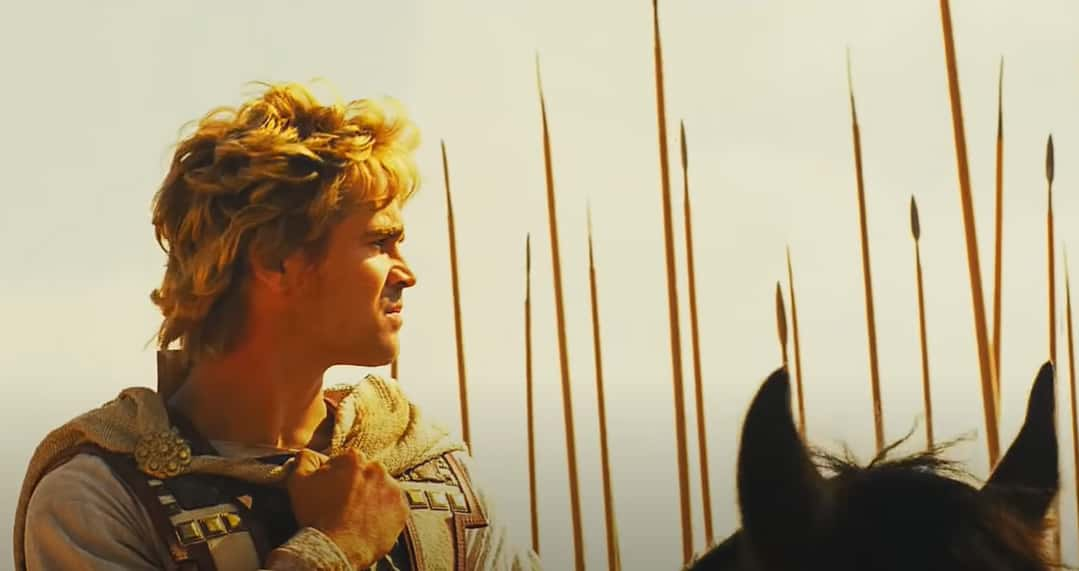 Alexander (2004), Warner Bros.
Alexander (2004), Warner Bros.
9. Namesake
Ancient Persians loved the truth so much, they put it in their names. On one list of ordinary Persians, 72 of them used the word truth alongside their name, such as “Artakama, lover of truth” and “Artastuna, pillar of truth.”
8. Sounds Like Malpractice
Ancient Persian doctors administered mercury as an ointment.
7. Party Like It’s 2408
Ancient Persians celebrated a New Year’s holiday that is still celebrated today. The springtime Nowruz party included feasting, an exchange of gifts, egg-painting, and bonfires. Some of these customs continue to this day.
6. The Worst Way to Go
The Persians practiced one of the most horrific forms of pain imaginable: scaphism. They would stuff a victim in a log, and force-feed them milk and honey until the victim had diarrhea. They would then smear honey on all the victim’s orifices and set the log adrift on a lake. Insects would eat the victim’s flesh, burrow into their body, and lay eggs in their diarrhea. The victim would be kept alive for up to a week while bugs ate the flesh right off their bones.
5. Anybody Home?
There’s a reason why the Ancient Persians valued the truth so much: their version of afterlife was the House of Lies. If you’re unlucky enough to wind up there, you will spend eternity eating corpses, rotten food, and body fluids. The House of Lies is dark, and no matter how many people go there, you’ll think you’re all alone forever.
4. Family Ties
The Ancient Persians practiced marrying their family, though it’s not clear to what extent. We know that Persian kings married cousins, half-siblings, and nieces. Greek sources tell us that the Persians also married their own sisters and daughters, but thankfully this isn’t verified.
3. What’s for Dessert?
We hear a lot about what the Greeks thought of the Persians, but rarely the other way around. The Greek historian Herodotus does tell us this: the Persians laughed at the Greeks for not eating dessert. To the Persians, if you didn’t get your dessert, that meant leaving the table hungry.
2. The Strong Stuff
Ancient Persians horrified their Greek neighbors by drinking their booze without water in it. The Greeks considered unmixed booze dangerous and barbaric, and they thought it caused lunacy. Little did they know, it actually causes fun.
1. Ashes to Ashes
The Bible mentions a horrifying punishment practiced by the ancient Persians. They had a 75-foot-tall tower full of ashes just for executions. The felon would be thrown inside, and the executioners would turn wheels to stir up the ashes. The felon would suffer a slow and miserable suffocation inside.
 Harry Potter and the Prisoner of Azkaban, Warner Bros.
Harry Potter and the Prisoner of Azkaban, Warner Bros.
Sources: 1, 2, 3, 4, 5, 6, 7, 8, 9, 10, 11, 12, 13, 14, 15, 16, 17, 18, 19, 20, 21, 22, 23, 24, 25, 26, 27, 28, 29, 30, 31, 32, 33, 34, 35, 36, 37


